 We're getting caught up on today's BradCast with a whole bunch of stuff, from the dark Trump secrets still buried in unreleased Epstein Files, to his lies, illegal actions and terrible advice about the economy, to another loss for Republicans in the Gerrymandering Wars and some actual election fraud finally discovered in Georgia! (And you'll never guess whodunnit!) [Audio link to full show follows below this summary.]
We're getting caught up on today's BradCast with a whole bunch of stuff, from the dark Trump secrets still buried in unreleased Epstein Files, to his lies, illegal actions and terrible advice about the economy, to another loss for Republicans in the Gerrymandering Wars and some actual election fraud finally discovered in Georgia! (And you'll never guess whodunnit!) [Audio link to full show follows below this summary.]
Happily, the corporate mainstream media finally seems to be fully on board the disturbing, still-unexplained, and unlawful absence of critical documents from the Epstein Files released to date by the Dept. of Justice as per the Epstein Files Transparency Act. In addition to the absence of multiple 2019 FBI interviews with a woman who accused Donald Trump of sexually assaulting her when she was just 13-years old, additional revelations are coming to light. CNN, for instance, confirmed those three missing interviews and contemporaneous FBI interview notes this week, and found that at least another 90 interviews with other survivors are also apparently missing, for unexplained reasons, from the DOJ's website.
But, with the major outlets seemingly digging in, we've got a bit more time today to get caught up on some other stuff, regarding some economic matters, some SCOTUS issues, and some election news. Among those stories...
- Fallout from last week's 6 to 3 U.S. Supreme Court ruling determining that Trump's chaotic, worldwide taxes on imports to the U.S., as issued under the supposed authority of the U.S. International Emergency Economic Powers Act (or, IEEPA), are both unlawful and unconstitutional. As it turns out, those illegal tariffs have also been very expensive for American consumers who paid for about 90% of them according to studies issued this month from both the Federal Reserve and the nonpartisan Congressional Budget Office. That, despite Trump's repeatedly lie (as echoed again during his State of the Union Address this week), that "the tariffs [are] paid for by foreign countries." Both the Fed and Congress disagree.
- But, don't be fooled by SCOTUS' ruling last Friday, even if it came in opposition to the President for a happy change. In fact, the challenge to Trump's tariffs was a case brought by the far-right architect of today's corrupted Supreme Court, and it took almost half a year longer to be handed down by the corrupted Court than necessary. No, SCOTUS has not "joined the No Kings Movement", as MS NOW's Stephanie Ruhle ridiculously declared after the ruling was handed down.
- For the record, the "economic emergency" that Trump disingenuously declared as his pretext to enact the levies was supposedly based on a global trade deficit that the U.S. has with many countries of the world. As it turns out, that deficit grew larger under Trump's tariffs last year, according to Trump's own Commerce Dept. data.
- Not to worry, however, everyone is going to be rich once the Republicans' One Big Beautiful Bill Act kicks in for this year's tax season, right? Um, so far...based on IRS data to date, not so much, as average refunds in the first part of the filing season have been some 42% lower than the Administration has long been promising they would be.
- But, hey, there are a lot of MAGA suckers out there, I guess. And we should have expected no less from the guy whose failing media company, Trump Media & Technology Group (which trades as DJT on the stock exchange) has seen its value plummet faster than his approval ratings. This week, shares in his loser company, which once sold for $100 --- and cost a bunch of MAGA folks their life savings --- closed for the first time on Monday in the single digits! The company, which has lost hundreds of millions of dollars every year since it went public in 2022, clawed its way back above $10/share in recent days. It seems unlikely to stay there.
- In election and voting news, Team Red continue to struggle in their Gerrymandering Wars in advance of the critical midterm elections, as both the Utah state Supreme Court (on Friday) and a three-judge federal panel (on Monday), rejected state Republicans' attempts to override a 2018 ballot initiative in which voters chose to require U.S. House district maps in the otherwise very Republican state to be drawn fairly, with neutral rules, by an independent redistricting commission. The GOP state Legislature has been trying to lock in their unlawful map, drawn to create four safe Republican Congressional Districts. But, after the recent rulings, we appear now to be at the end of their four-year battle to block a new map that will offer three Republican leaning Districts and one safely Democratic seat in Salt Lake County.
- Down in Georgia, where Trump has been falsely claiming massive voter fraud since he lost the 2020 election there, the MAGA majority on the State Election Board has, in fact, finally discovered some election fraud! And it was apparently committed by one of Elon Musk's super PACs in both 2020 and 2024.
- Finally, Desi Doyen joins us for our latest Green News Report today, with a bunch of energy related lies from Trump's SOTU this week; Big Oil's appeal to SCOTUS to help them quash climate liability lawsuits; Trump's Interior Dept. quashing bedrock conservation rules for public lands; and a new suit filed by young Americans to challenge the Trump EPA's recent gutting of 20 years of climate change-related regulations...
(Snail mail support to "Brad Friedman, 7095 Hollywood Blvd., #594 Los Angeles, CA 90028" always welcome too!)
|


 No Way Home: Trump's Iran War a Spreading, Chaotic, Deadly, Disaster: 'BradCast' 3/3/26
No Way Home: Trump's Iran War a Spreading, Chaotic, Deadly, Disaster: 'BradCast' 3/3/26 'Green News Report' 3/3/26
'Green News Report' 3/3/26
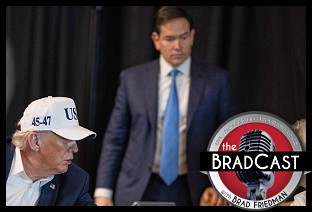 Trump Attacks Iran in 'Operation Epstein Fury': 'BradCast' 3/2/26
Trump Attacks Iran in 'Operation Epstein Fury': 'BradCast' 3/2/26 Sunday 'No, More Wars!' Toons
Sunday 'No, More Wars!' Toons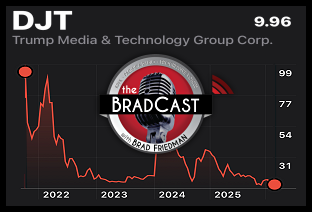 Loser Trump's Unlawful Tariffs, Failed Media Company, Corrupt SCOTUS: 'BradCast' 2/26/26
Loser Trump's Unlawful Tariffs, Failed Media Company, Corrupt SCOTUS: 'BradCast' 2/26/26 'Green News Report' 2/26/26
'Green News Report' 2/26/26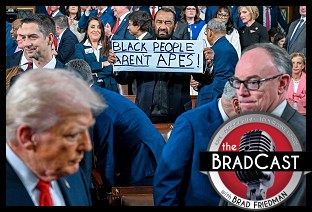 The State of the Union is ... Insane.
The State of the Union is ... Insane.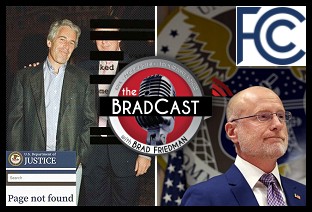 FCC's New 'Threat' to Broadcasters; NPR Confirms DOJ's 'Missing' Trump 'Rape' Docs: 'BradCast' 2/24/26
FCC's New 'Threat' to Broadcasters; NPR Confirms DOJ's 'Missing' Trump 'Rape' Docs: 'BradCast' 2/24/26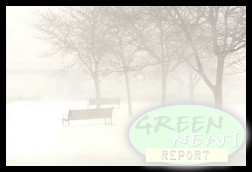 'Green News Report' 2/24/26
'Green News Report' 2/24/26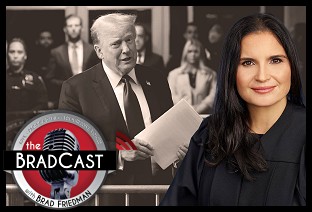 Aileen Cannon May be Covering Up Evidence of Trump Rape: 'BradCast' 2/23/26
Aileen Cannon May be Covering Up Evidence of Trump Rape: 'BradCast' 2/23/26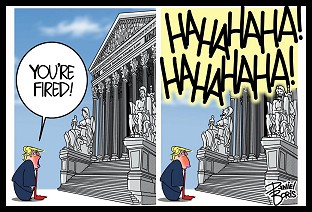 Sunday 'Plan B' Toons
Sunday 'Plan B' Toons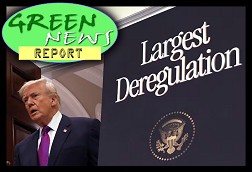 'Green News Report' 2/19/26
'Green News Report' 2/19/26 DOJ Hiding Evidence of Trump Rape, Assault Allegations: 'BradCast' 2/19/26
DOJ Hiding Evidence of Trump Rape, Assault Allegations: 'BradCast' 2/19/26 'No More Fig Leaves': Antisemitism Rising Inside MAGA, GOP: 'BradCast' 2/18/26
'No More Fig Leaves': Antisemitism Rising Inside MAGA, GOP: 'BradCast' 2/18/26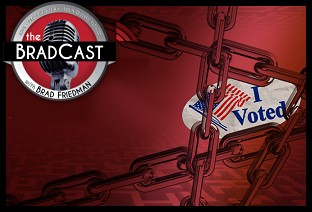 'SAVE America Act' Designed to Save GOP, Undermine Democracy: 'BradCast' 2/17/26
'SAVE America Act' Designed to Save GOP, Undermine Democracy: 'BradCast' 2/17/26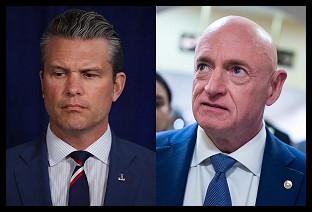 Court Blocks Hegseth Censure of Sen. Kelly
Court Blocks Hegseth Censure of Sen. Kelly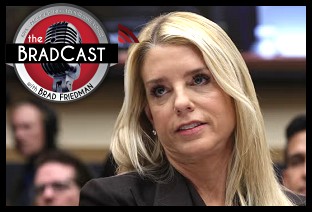 Harpy Tantrums, Legal Losses, Election Fails, Retreating ICE: 'BradCast' 2/12/26
Harpy Tantrums, Legal Losses, Election Fails, Retreating ICE: 'BradCast' 2/12/26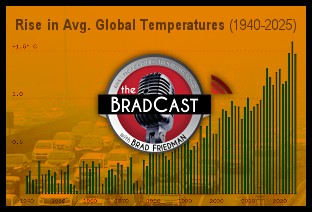 Trump to Reverse EPA's Landmark 'Endanger-ment Finding': 'BradCast' 2/11/26
Trump to Reverse EPA's Landmark 'Endanger-ment Finding': 'BradCast' 2/11/26 Trump's Racism, Corruption, 'Culture War': 'BradCast' 2/10/26
Trump's Racism, Corruption, 'Culture War': 'BradCast' 2/10/26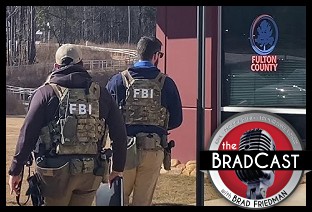 About Trump's FBI Raid of Fulton County, GA Election Hub: 'BradCast' 2/9/26
About Trump's FBI Raid of Fulton County, GA Election Hub: 'BradCast' 2/9/26
 VA GOP VOTER REG FRAUDSTER OFF HOOK
VA GOP VOTER REG FRAUDSTER OFF HOOK Criminal GOP Voter Registration Fraud Probe Expanding in VA
Criminal GOP Voter Registration Fraud Probe Expanding in VA DOJ PROBE SOUGHT AFTER VA ARREST
DOJ PROBE SOUGHT AFTER VA ARREST Arrest in VA: GOP Voter Reg Scandal Widens
Arrest in VA: GOP Voter Reg Scandal Widens ALL TOGETHER: ROVE, SPROUL, KOCHS, RNC
ALL TOGETHER: ROVE, SPROUL, KOCHS, RNC LATimes: RNC's 'Fired' Sproul Working for Repubs in 'as Many as 30 States'
LATimes: RNC's 'Fired' Sproul Working for Repubs in 'as Many as 30 States' 'Fired' Sproul Group 'Cloned', Still Working for Republicans in At Least 10 States
'Fired' Sproul Group 'Cloned', Still Working for Republicans in At Least 10 States FINALLY: FOX ON GOP REG FRAUD SCANDAL
FINALLY: FOX ON GOP REG FRAUD SCANDAL COLORADO FOLLOWS FLORIDA WITH GOP CRIMINAL INVESTIGATION
COLORADO FOLLOWS FLORIDA WITH GOP CRIMINAL INVESTIGATION CRIMINAL PROBE LAUNCHED INTO GOP VOTER REGISTRATION FRAUD SCANDAL IN FL
CRIMINAL PROBE LAUNCHED INTO GOP VOTER REGISTRATION FRAUD SCANDAL IN FL Brad Breaks PA Photo ID & GOP Registration Fraud Scandal News on Hartmann TV
Brad Breaks PA Photo ID & GOP Registration Fraud Scandal News on Hartmann TV  CAUGHT ON TAPE: COORDINATED NATIONWIDE GOP VOTER REG SCAM
CAUGHT ON TAPE: COORDINATED NATIONWIDE GOP VOTER REG SCAM CRIMINAL ELECTION FRAUD COMPLAINT FILED AGAINST GOP 'FRAUD' FIRM
CRIMINAL ELECTION FRAUD COMPLAINT FILED AGAINST GOP 'FRAUD' FIRM RICK SCOTT GETS ROLLED IN GOP REGISTRATION FRAUD SCANDAL
RICK SCOTT GETS ROLLED IN GOP REGISTRATION FRAUD SCANDAL VIDEO: Brad Breaks GOP Reg Fraud Scandal on Hartmann TV
VIDEO: Brad Breaks GOP Reg Fraud Scandal on Hartmann TV RNC FIRES NATIONAL VOTER REGISTRATION FIRM FOR FRAUD
RNC FIRES NATIONAL VOTER REGISTRATION FIRM FOR FRAUD EXCLUSIVE: Intvw w/ FL Official Who First Discovered GOP Reg Fraud
EXCLUSIVE: Intvw w/ FL Official Who First Discovered GOP Reg Fraud GOP REGISTRATION FRAUD FOUND IN FL
GOP REGISTRATION FRAUD FOUND IN FL



















 As insane as it was, as you may have guessed, we're talking about Tuesday's night State of the Union Address on today's
As insane as it was, as you may have guessed, we're talking about Tuesday's night State of the Union Address on today's  On today's
On today's  Today on
Today on  You're going to get the most, by far, from today's
You're going to get the most, by far, from today's  We getcha caught up on a whole bunch of news from over the weekend on today's
We getcha caught up on a whole bunch of news from over the weekend on today's  It's always about elections, as detailed yet again on today's
It's always about elections, as detailed yet again on today's  We've been warning about it on
We've been warning about it on 







 Hey! Another busy day on
Hey! Another busy day on  It was another one of those everything, everywhere, all at once days, where figuring out how best and where to focus our coverage --- with news breaking and changing by the hour --- is always a Trump Era challenge (nightmare). We're happy to have you along for the ride on today's
It was another one of those everything, everywhere, all at once days, where figuring out how best and where to focus our coverage --- with news breaking and changing by the hour --- is always a Trump Era challenge (nightmare). We're happy to have you along for the ride on today's  Some of the weirdness has been completely predictable, if not to many of his duped supporters. Some of it is a surprise. All of it underscores, yet again on today's
Some of the weirdness has been completely predictable, if not to many of his duped supporters. Some of it is a surprise. All of it underscores, yet again on today's  His pathetic lies about the 2020 election will apparently never end. He's a loser and can't get over it. Even now. But, as a longtime expert in election transparency, security and integrity --- and, specifically, Georgia's unverifiable touchscreen voting system --- explains on today's
His pathetic lies about the 2020 election will apparently never end. He's a loser and can't get over it. Even now. But, as a longtime expert in election transparency, security and integrity --- and, specifically, Georgia's unverifiable touchscreen voting system --- explains on today's  It's five years to the day since January 6, 2021, when the then President of the United States got away with one of the most audacious crimes ever attempted in the U.S.: a failed attempt to have his own supporters violently overthrow the U.S. Government in order to help steal a Presidential election. Today on
It's five years to the day since January 6, 2021, when the then President of the United States got away with one of the most audacious crimes ever attempted in the U.S.: a failed attempt to have his own supporters violently overthrow the U.S. Government in order to help steal a Presidential election. Today on  My ears are still ringing after the President of the United States spent about 20 minutes barking at me last night. But the show --- in this case, the final
My ears are still ringing after the President of the United States spent about 20 minutes barking at me last night. But the show --- in this case, the final 












